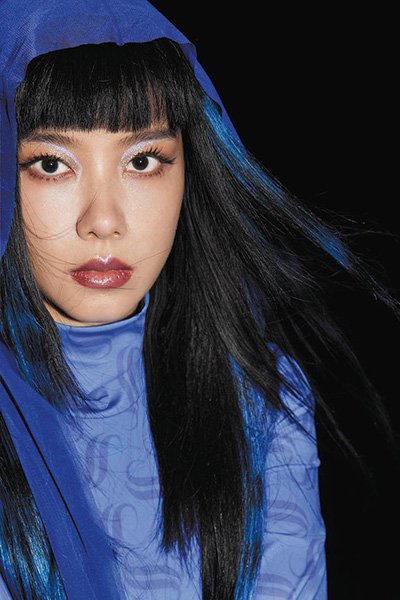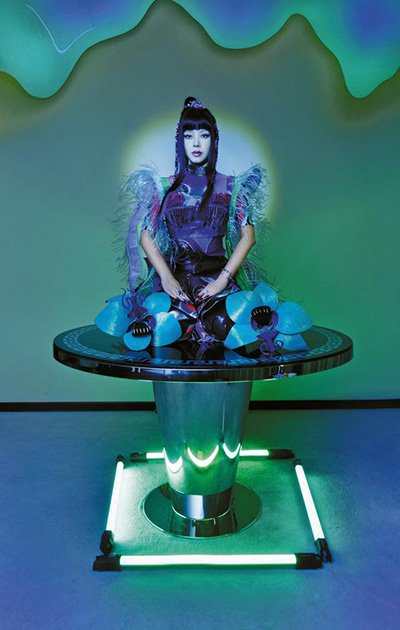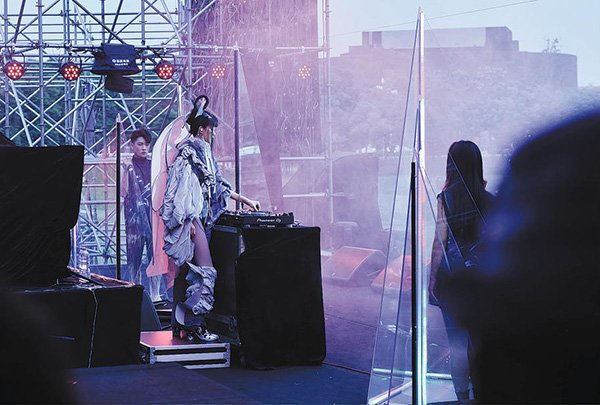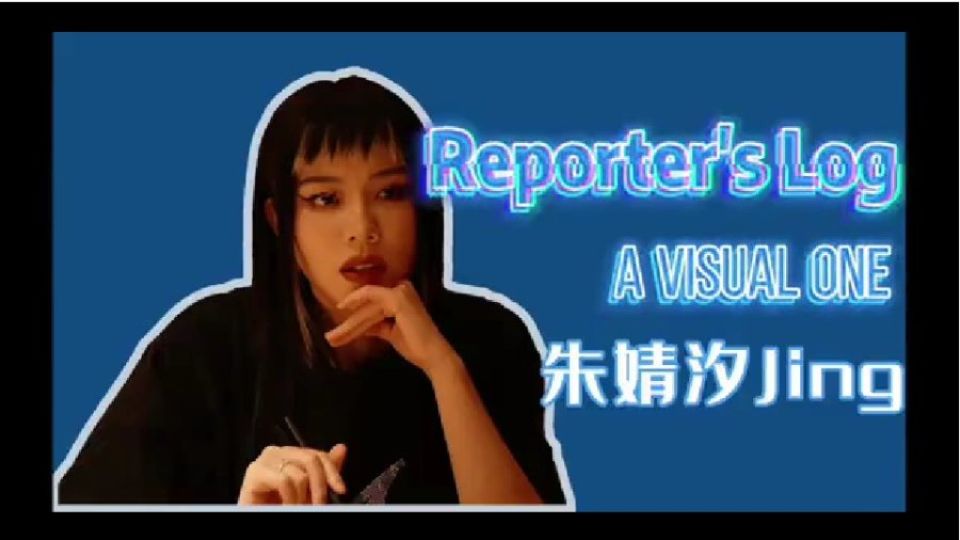December 22, 2022
BEIJING – Clad in flame-red techwear, adorned with ornaments of various sizes, singer-songwriter Zhu Jingxi announced her presence with the stage visuals embodying cyberpunk aesthetics and her intoxicating voice imbued with a certain ethereal beauty.
The Dai performer, born in Pu’er, Southwest China’s Yunnan province, successfully brought the inner diva out of her at the 88rising “Head in the Clouds” music festival held in Manila, the Philippines, on Dec 10.
Resolving to maintain cyberpunk style in her music and stage persona, Zhu enjoys being a storyteller of her futuristic fantasies through a portfolio that ranges from electronic music, pop to rock and folk.
But without a doubt, electronic music is her bedrock.
She knew that she wanted to be a singer from childhood.

Zhu Jingxi, a Dai woman from Pu’er city, Southwest China’s Yunnan province, aims to merge cyberpunk style with traditional Chinese cultural elements in her visual and musical expressions.[Photo provided to China Daily]
In 2002, when she was 14, she heard Teardrop by Bristol’s trip-hop legend Massive Attack.
The start resonates like a pulse, similar to a heartbeat. As the melodic line jumps in, metallic and enigmatic, followed by slow notes, she felt like “being pulled into a dreamlike universe”.
“I was shocked and then became obsessed with music with similar psychedelic accents,” she says.
Being a sci-fi fanatic, she found that many of those novels, animations and films in the field would discuss topics including how to explore one’s inner world.
Within the frame of cyberpunk aesthetics, she is able to delve into a wide variety of topics both in the virtual world and reality.
“In this era of high tech, how can we cope with our limitations and find a new way out?” she exemplifies.
Zhu reinvented herself as cyborg persona Akini Jing in 2019.
The next year, she released a concept album titled Plastic Heaven by which she uses 10 songs to tell a complete story of how Akini Jing was created as a robotic body, then gradually turned into a cyborg, after experiencing some feelings of human beings, and in the end awakened to be a real human.

Zhu Jingxi, a Dai woman from Pu’er city, Southwest China’s Yunnan province, aims to merge cyberpunk style with traditional Chinese cultural elements in her visual and musical expressions.[Photo provided to China Daily]
This album was inspired by Andrei Tarkovsky’s sci-fi classic Solaris. Then it’s not surprising many audiences comments that spending 40 minutes to listen to the whole album is like watching a movie.
Since her debut in the music industry, Zhu has collaborated with many foreign musicians including French duo Toukan Toukan, the California-based songwriter Mario Marchetti and Finnish chanteuse Saara Aalto.
In 2019, she also appeared in the documentary Generational Gravity which probes into the key subjects of interest to the global young generation, namely street culture, beauty and makeup, hair styles and party culture. That took her on a journey to Berlin, Moscow, Kyiv and London where she immersed among young people, mostly music aficionados, in all-night raves and parties revolving on different music genres.
“I really enjoy going to different places all around the world to explore, observe and experience the youth culture and communicate with those young talent,” Zhu says.
She regards such experiences of cultural exchange a source of inspiration for her creations.
“That helps me to further understand the diversity of the world and also helps me to know more about myself,” she adds.
Her open-mindedness naturally makes it easy for her to create musical works that enjoy popularity among an audience of varied cultural backgrounds.
When writing lyrics, either Chinese or English, she is adept at using simple terms to give graphic descriptions of scenes or stories that can resonate with listeners.
Many of her tracks are well received overseas. For instance, the single Shadow successfully made its way onto the Billboard Hot 100 chart in 2018. Another track, Blessing, was recommended by the international music review site Pitchfork in August, noting that “her synthpop explores the relationship between technology, humanity, and consciousness”.
She believes that sincere self-expression can help her music attract a wide audience.

Zhu Jingxi, a Dai woman from Pu’er city, Southwest China’s Yunnan province, aims to merge cyberpunk style with traditional Chinese cultural elements in her visual and musical expressions.[Photo provided to China Daily]
It’s a remarkable fact that behind Zhu’s sassy look, highly experimental pieces of music and cyborg persona is her continuous pursuit of tradition.
“As a Chinese, I found that the further I explore the outside world, the more I want to trace back my roots,” she says.
On one hand, she has been trying to merge the sound of traditional Chinese instruments, such as the guzheng, or Chinese zither and the ancient bianzhong, or chime bells with electronic music.
“That shouldn’t be done intentionally,” she adds.
“I use folk tunes only if I think they perfectly suit the style of the song.”
On the other hand, she would boldly use Chinese cultural elements in the visual design of her music videos and stages.
She adds that Chinese literature, including legends, mythologies and wuxia (martial arts and chivalry) novels, has a subtle, yet profound influence on the formation of her aesthetic preference.
“Some descriptions, without shedding much ink over the subject in details, would ingeniously leave a blank space that inspires reader’s imagination. That’s beautiful and poetic,” she says, adding that she sometimes could apply such notion in her music and visual designs.

Zhu Jingxi, a Dai woman from Pu’er city, Southwest China’s Yunnan province, aims to merge cyberpunk style with traditional Chinese cultural elements in her visual and musical expressions.[Photo provided to China Daily]
Apart from combining traditional music of different ethnic groups with her pieces, she has also been drawing inspiration from biodiversity.
By examining the branching pattern of those ferns that are ubiquitous in her hometown Pu’er, Zhu got ideas for designing a stage costume.
After she got to know the herbaceous plant rheum nobile that grows from stout, woody, rhizomatous rootstock and blossoms just once in its lifetime, she was touched and wrote a song for the plant in which she tries to observe the world from the “eyes” of the plant.
In vlogs she’s filmed to record her hikes in the mountain forest, she can quickly identify different plants.
“For me, hometown is a kind of philosophy,” she says. “I’ve learned from this land about the relationship between human and nature and it helps me to develop my perception of the surroundings.”


